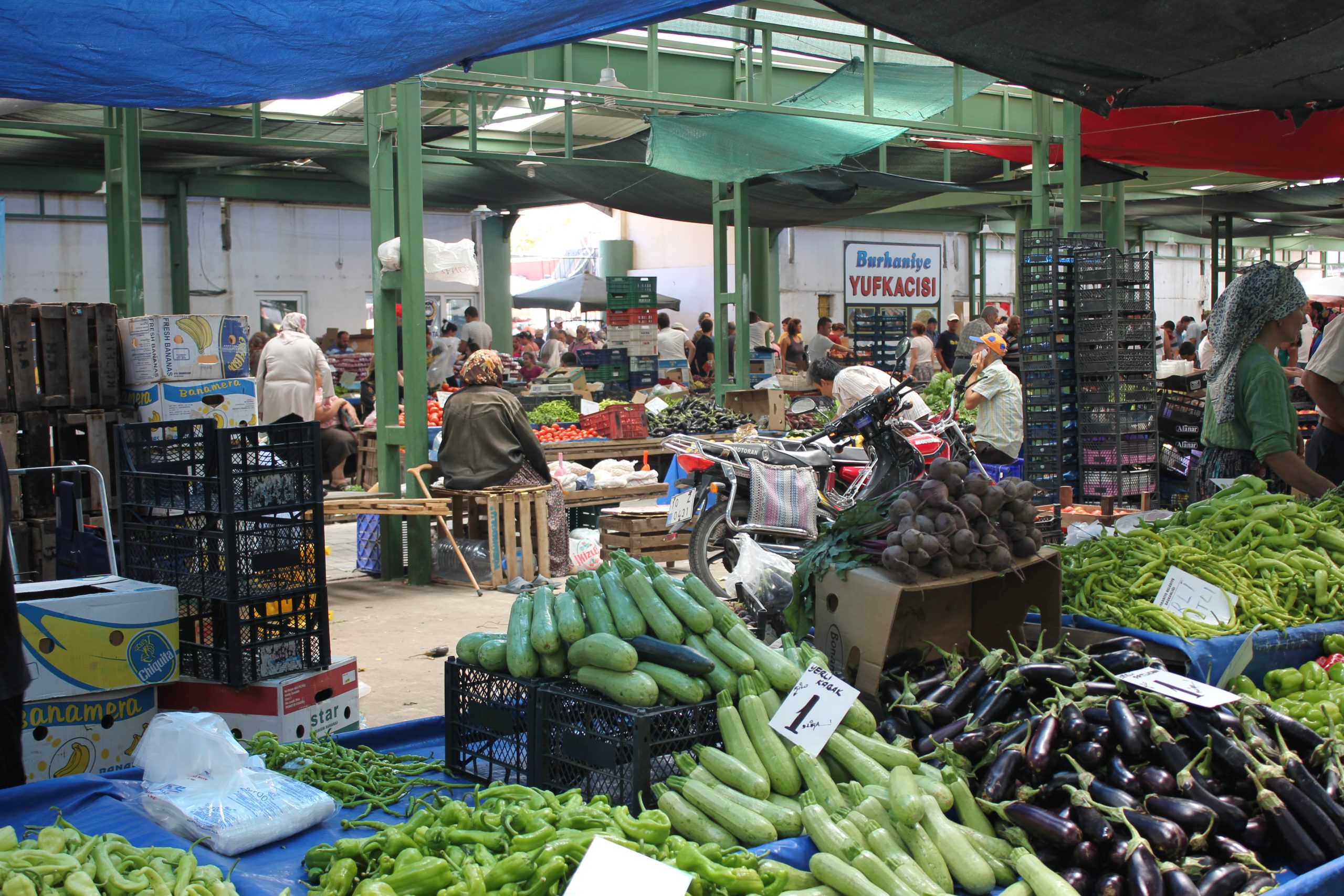Dr. Candan Türkkan is a professor of politics and sustainability in Ozyegin University’s Gastronomy and Culinary Arts department in Istanbul, Turkey. At the 2021 Food Matters and Materialities conference, Dr. Türkkan gave a presentation about local food movements in Istanbul, which, she argues, contribute to the “embeddedness” of food. She explained that “embeddedness” is important because it reconnects food to the production process. Still, it also allows people to be more connected to their food, the people, and the practices it was produced by”.

Bazaar in Burhaniye, Turkey. Credits: Courtesy of Candan Turkkan.
Throughout her research, Dr. Türkkan has learned that the locals involved in the agri-food system in Istanbul feel they had lost a sense of belonging and urban identity because of the transformations in the food system and how people source their food. For example, she observed how significant urban transformation and technological advancement impacted consumers’ access to purchase food. From ordering groceries online to major superstores and grocers, people are increasingly disconnected from the people and places that produced their food and each other. Dr. Türkkan explains that it matters as, “When food is disembedded, people are less likely to care as much, people only care if their food is cheap and edible”.
Türkkan’s presentation at the Conference helped the audience to appreciate the value of embeddedness in local practices and food movements. She focussed specifically on comparing farmers’ markets (popular in the Global North) and bazaars (large marketplaces popular in the Middle East). The two types of markets differ in terms of producers, vendors, and consumers. Dr. Türkkan explained that typically, bazaars in metropolitan city centres occur weekly and are operated by vendors selling produce from wholesalers. As a result, they attract local neighbourhood residents. However, farmers’ markets consist of vendors who are also the producers and attract a variety of customers.
While today’s global food system is fraught with concerns about working conditions and sustainability, local food movements – like farmers’ markets and bazaars – are a positive alternative to this disembedded system. In addition, as Türkkan highlights, if food is embedded, consumers would be a lot more aware of the production process of their food and likely be more concerned with issues in the process that may occur.
Türkkan also emphasized the significance of the “community-generating aspect of bazaars,” explaining how marketplaces provide opportunities for neighbours to connect each week – something that ordering groceries online does not allow for. This is especially relevant to recent circumstances during the Covid-19 pandemic. Local food movements like farmers’ markets or bazaars “re-socialize and re-spatialize” food, Türkkan explained. People who were alienated from one another or the environment can reconnect in these community-generating spaces.
Reflecting on this unique and isolating time, Türkkan’s emphasis on embeddedness can also help us think about the ‘power relations of locality’ and the challenges they pose to communities. By this, Türkkan means we still need to pay attention to how local food movements can also play a role in reproducing existing inequality, whether it is based on socio-economic status or gender. Türkkan’s presentation is helpful for thinking about how food is much more than what we eat – it is tied to every aspect of life and can be a site for meaningful change. Inequality has been exacerbated by the pandemic, so as we recover from the aftermath, we have a unique opportunity to make positive changes in our disembedded food system and reflect on the inequality that persists today.